Senior Reflection: Andrea “AJ” Gordon
Senior Andrea “AJ” Gordon shares her advice and gratitude before graduating high school. She will head to Davidson College this fall with the Belk Scholarship.
I understand that it is tradition for seniors to give heartfelt stories regarding their sincere gratitude towards the school and newspaper for its contributions to their high school experience, in turn making Mrs. Confino cry. While it is well within my ability to make Mrs. Confino cry, I’ve decided to end my high school legacy with some very real, non-cliche advice.
As someone who entered high school with no solid study habits, work ethic, or willingness to explore new opportunities and ended up involved in the school community with scholarship opportunities that, despite their encouragement, my parents were never expecting, I think I have some credibility when it comes to learning how to learn. Although I don’t believe that verbal advice will ever be as effective as gaining wisdom through brute trial and error, here’s my best attempt. If you want to avoid the dramatic character arc that was my last four years of high school, listen well.
1. Learn from the second best
Now, this isn’t applicable in all cases, but I think this is something to keep in mind when trying to seek help or guidance from someone with more knowledge and experience than you. Sometimes the pros or prodigies aren’t the best teachers. It’s instinctive to look towards the best in a subject or skill to help you when you’re struggling, but there are cases where people are born with a certain cog in their brain that normal people simply don’t have.
Asking for someone to break down a problem or theory who’s wildly enthusiastic and has an affinity for the subject while you yourself despise it may yield mixed results. This also goes for trying to find methods to organize notes and tasks from the most Type A personality you know or deciphering grammar rules from a native speaker. There definitely exist genius-level talented people who love explaining things and are helpful, but if you get frustrated with the best of the best, don’t take it personally.
2. Know your limits
Everyone has a breaking point. Student burnout is a very real thing and I think it’s a product of the short-term goals or milestones students are regularly presented with that distract us from the longevity or sustainability of our habits. The “finish line” does not exist; if it does, it is ever moving, which is difficult to conceptualize when we’re younger.
Focus on building a routine or plan based on what you can and can’t sacrifice. For me, a very strict eating and sleeping schedule and some form of weekly exercise were non-negotiable, but a good chunk of my free time was sacrificed because of it. Obviously, don’t do anything detrimental to your health, but if staying up the extra hour to hang out with friends or family or investing in a passion is what makes all the hard work worth it, it may as well be as necessary as food and water.
Being aware of these boundaries goes beyond just maintaining your own well-being; it is essential to being able to work hard. Once I knew for myself the full extent to which I could push myself to work hard in academics, extracurriculars, and other aspects of my life in a sustainable manner that I felt fulfilled, I didn’t take as many excuses from myself regarding not being in the mood or feeling unmotivated to complete the tasks before me. Additionally, I wasn’t as discouraged as I was before because I hadn’t set unrealistic expectations for myself that I couldn’t possibly meet.
3. Don’t compare
Going off of the discussion of knowing our limits and not comparing ourselves to others isn’t just to prevent mental spiraling; it is essential to working hard. The more I progressed in school, the more I discovered all the tiny factors that contribute to a person’s ability to study well or excel in a subject.
Factors such as intelligence, goals, and interest contribute to how well someone will do in a specific class. There are other factors, such as health needs, mental health needs, familial obligations, financial needs, and external stressors, that can all play a factor. But there are even more specific and detailed factors that contribute, such as having regular transportation to certain activities, having a quiet place to study, the expectations of parents and the freedoms they permit, along with the responsibilities they hold you to, and even things such as the people you were surrounded by growing up who may have influenced your interest and skill at something.
Comparison is not just disheartening; it is illogical and inefficient. Knowing your own obligations, needs, and limits and doing your best within them should not be jeopardized by anger at yourself for not being someone else.
4. Be open to new opportunities and work with what you have.
If you had asked middle school AJ to look at current AJ and decide whether all her dreams had come true, she would probably tell you.., “No.” While being able to go to the school I am committed to is pretty epic, even for middle school me, she had a very different idea of the role I would play in high school. This is likely a result of having two older sisters who went to a different high school, which meant that some of the opportunities I had banked on being a part of looked very different in the context of Watkins Mill.
Yet, Watkins Mill had plenty of new opportunities for me to take part in and thoroughly enjoy. If I had tried to apply the template of success I developed from my sisters at a different school and not taken into account what was available to me at this school, I would’ve failed miserably. There are multiple ways to get to the same place, and trying to attain a goal with resources not within reach while others lay readily available isn’t the best course of action.
5. If it works, it works
Once you get a good sense of how you best study, stay organized, stay on task, memorize content, or anything essential to being a successful student, stick with it. This may seem like the obvious course of action, but although the pieces of advice we intake from the media, parents, peers, and teachers, it can be challenging to trust your own knowledge of how you work, especially if a method you use seems a little odd or time-consuming.
Some days, I felt it impossible to focus in a quiet room or a room without background noise or activity, but I would shut the urge down as it seemed counterintuitive. Eventually, I caved in and began studying in loud cafes or with the TV on, along with my headphones playing music. Is it the most perfectly ideal method of studying? Probably not. But when I was really stuck or distracted, it allowed me to make a dent in my daily assignments.
Additionally, when it came to studying for IB Biology, I found that I needed to see the big picture to understand biological systems. This led me to draw huge, excessive, all-encompassing diagrams for the sake of comprehending a few key details regarding the purpose of a system or function. Again, this was less than efficient, but it’s something I knew worked, and until I found a more timely and effective method of understanding, it was the best I had.
It is vital to find strategies and study habits that work for you, but those may not be the most objectively perfect or best ways to understand something. What matters is that it’s applicable to your situation, thought process, and is something you can rely on to help you learn or organize your learning.
6. Recognize inconvenient truths and attempt the impossible
Throughout high school, you’re likely to learn some pretty discouraging stuff when it comes to working towards your goals. You’ll see how natural ability and intelligence play into a person’s success and the opportunities that they are then given. If you go to Watkins Mill or a school with a similar minority-majority population, you’ll see the impacts of race, financial stability, immigration status, and generational wealth or the lack of it on a student’s lifetime, furthering or hindering the opportunities they may receive.
You’ll begin to understand the obstacles that may stand in your way between the goals you want to achieve and the factors that can easily undermine years of your hard work. You’ll come to the realization that your “success” may look different than what you envisioned and will not progress in a linear or timely fashion.
And despite it all, to give yourself a fighting chance, you’ll have to try anyway. Not through an epic training montage or under a brief spell of motivation, but through a regular sustainable and often tedious routine that is always a little bit short of ideal and never quite allows you to do everything you want. As someone who put herself through tough classes with a terribly inaccurate sense of time, the attention span of a toddler, and an incohesive way of understanding things, the frustrations I just listed felt prevalent almost every day that I was trying to convince myself it would all pay off.
Luckily, you won’t be alone. At Watkins Mill, I was introduced to the most hard-working, creative, and determined students I’ve ever met who didn’t let the direness of their situation deter them from reaching for their goals. I met teachers who sympathized wholly with my frustrations and the setbacks I was observing yet still demanded the absolute best foot forward from all their students. I met people who believed in me, invested in me, and whom I am honored to share my high school experience with. Four years later, I guess I can say that, yes, things do have a way of working out.
Alright, that’s it for advice. Take it or leave it.
As this is my last article, I should probably thank The Current for all they’ve provided over the years. Thank you to the Editors-in-Chief for editing my 900-word, two-part articles because I learned many things in high school, but grammar was definitely not one of them. Thank you to our graphics designer for making images for all my abstract, over-complicated ideas. Thank you to the rest of the newspaper team for all the laughs and fun times in class that have no right to be as memorable as they were. Thank you to my loyal, dedicated fans (basically just my dad) for supporting me when I was speaking absolute nonsense and calling it an article.
And finally, thank you to Mrs. Confino, who continues to dedicate herself to her students out of a pure passion for writing and journalism and a genuine desire to uplift others who share her passion. She has entertained my wildest and incoherent ideas, worked with me to express myself in the best way I can, and provided a necessary creative and emotional outlet. Being able to publish my articles on The Current has forged connections and opened conversations in unimaginable ways. I (begrudgingly) admit that I will miss being a part of the newspaper team very much and am ever grateful for this experience.
Best,
AJ Gordon
Your donation will support the student journalists of Watkins Mill High School. Your contribution will allow us to purchase equipment and cover our annual website hosting costs.
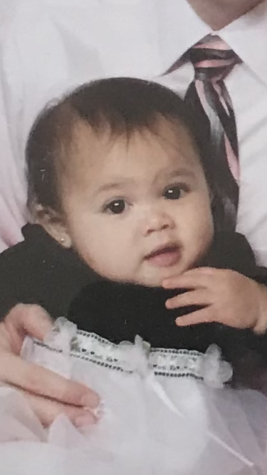
Andrea “AJ” Gordon is a senior at Watkins Mill High School and Opinion Managing Editor for The Current. She is an IB Diploma student and is a part...




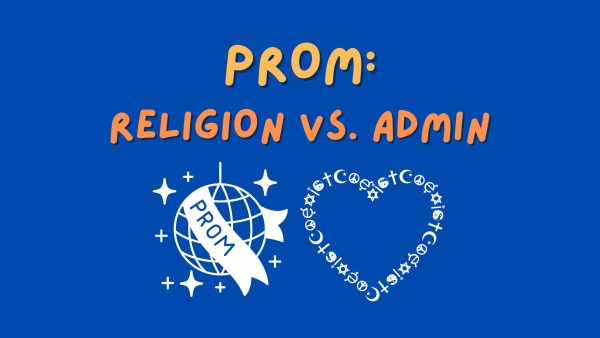
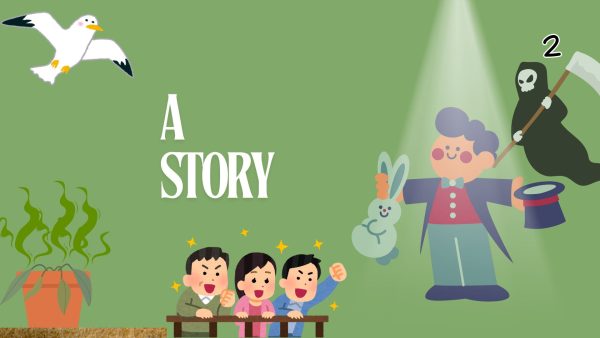


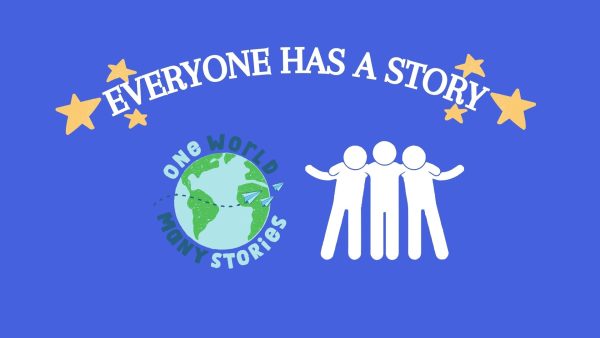

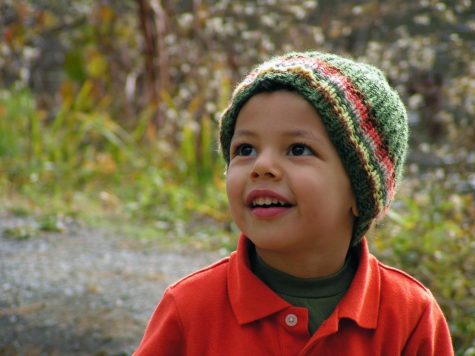



Ashley H • Jun 7, 2023 at 6:36 pm
SO PROUD OF YOU AJ♥️♥️♥️
Andrea Gordon • Jun 7, 2023 at 9:47 pm
We did that!!! ??